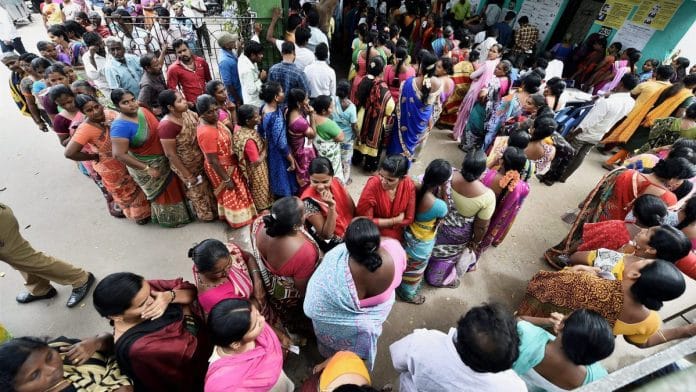Identity politics can’t be brought to an end through legislation or actions of the election commission, but only by endowing the individual with a strong voice.
The importance of caste in Indian politics has been a topic of constant discussion throughout the country’s democratic history. The discussion is especially relevant today, when a new generation of caste-based politicians is rising up in the country, as was prominently visible during the Gujarat assembly elections and is evident in the new alliances that are being formed between regional parties that possess a caste-based vote bank, to try and defeat the formidable Bharatiya Janata Party (BJP).
Caste is a central element of all politics in the country. There isn’t a single party that contests elections without paying heed to the caste arithmetic operating in each constituency. This is true in spite of the fact that most people, including politicians, denounce caste and identity-based politics in the public sphere.
The reasons for caste being a central element of politics are often poorly understood, especially in the urban sphere, where caste matters a whole lot less than it does in the villages of India. Caste isn’t just a means of identification; it is also a means of community support for people and a key element in the distribution of resources. Politicians often get blamed for doling out favours to people from their own caste group and for trying to incite casteist sentiments during elections, but the question that needs to be addressed is why people buy into the rhetoric.
The poor and marginalised population of this country from across caste groups barely has a voice in governance. People are often subject to whims of the local administration and are left feeling like victims of the system. In a country as complicated as India, social groups like caste are a support system to navigate the mess that is our governance, where the individual is insignificant and has no voice.
The marginalisation of individuals by the system of governance in India often makes caste-based voting a necessity for voters. An individual voter is insignificant, but a vote bank is invaluable. By associating themselves with a caste-based voting bloc, the voters are able to amplify their demands and voices.
Identity politics often serves as a basis for the formation of a strong pressure group that can highlight the problems and create pressure on the government to act. Most caste groups and voters have similar problems of unemployment, lack of proper remuneration from agriculture, issues with delivery of government schemes, and oppression from administrative officials. They could, in theory, organise themselves into pressure groups by region or across professions, but caste serves as a close proxy in India to represent the collective issues of a group of people. The historicity of caste and the close familial networks that have formed along caste lines over hundreds of years also makes caste one of the easiest parameters by which people can organise themselves into a pressure group.
Since a caste-based pressure group also represents a voting bloc or “vote bank” that has historically voted in unison, politicians are much more likely to address the demands of such a group. The historic successes achieved by groups that form the “Other Backward Classes” (OBC) in getting the recommendations of the Mandal Commission for 27 per cent reservation in educational institutions and government jobs for themselves, and successes by many caste groups in garnering special benefits through agitations, has ensured that people will continue to align themselves along caste lines.
Politicians have also realised the benefits of a core vote bank, and often bestow special favours on specific caste groups in the hopes of getting the votes of the entire community. This mutually-beneficial arrangement between the voters and the politicians has ensured that caste shall remain a mainstay of India’s politics.
Discrimination across caste lines must be opposed, and India must always aspire to be a casteless society, but the urban intelligentsia that has lost touch with the realities of caste identities that are still thriving in much of India must understand that identity politics is often a tool for the voiceless masses to organise themselves and get their voices heard in a system where they would otherwise remain ignored.
Identity politics cannot be brought to an end through legislation or actions of the election commission, it can only be brought to an end if the individual is empowered and has such a strong voice in governance that he does not require the refuge of his caste-based vote bank.
Shivam Shankar Singh is an election consultant who has worked on several political campaigns across India. Views expressed are personal. He tweets at @INshivams.






